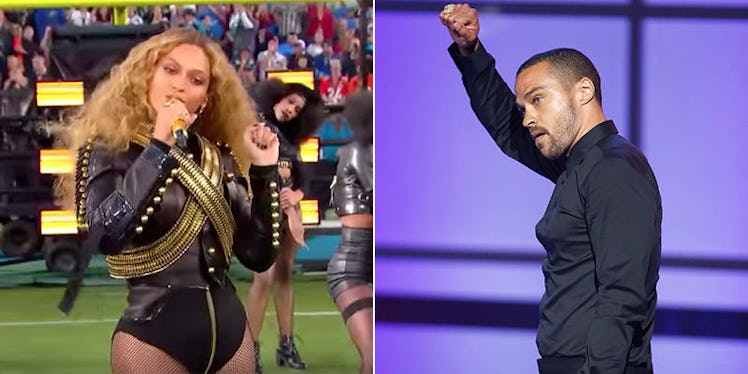
The Baton Rouge Shooting Is Why Celebs Like Beyoncé Aim To Cause Controversy
In the coming days, we will all learn more about Alton Sterling.
We'll learn more about how and why he was killed by two Baton Rouge police officers in Louisiana while selling CDs outside a convenience store.
We'll learn more about the 911 call that prompted those officers to arrive on the scene and whether or not they had as little reason to resort to killing Sterling as the horrifying video footage indicates.
We'll all learn more about what a man carrying a weapon in an open-carry state did to deserve his death.
We're also likely to learn more about the policies of the Baton Rouge Police Department, the city's sheriff and the city's mayor, all of which ultimately inform how cops interact with the people they're sworn to serve.
All of those facts, when we learn them, will be important to arrive at the many answers we want now but can't get 'til later.
None of those facts, however, are so important, we can't stop and say this one thing without hesitation: Instances like these, and the disturbing frequency with which they occur, are exactly why outspoken black celebrities ignore their critics.
Take Jesse Williams, for example.
Less than two weeks ago, Jesse Williams went on stage at the BET Awards to accept a humanitarian award. It's easy to remember the part of his speech that drew the loudest applause.
Williams said,
Now, what we've been doing is looking at the data and we know that police somehow manage to de-escalate, disarm and not kill white people every day.
Williams' speech didn't come without critics, and yet, Wednesday sees the circulation of a video showing police officers doing exactly what Williams was talking about: failing to de-escalate a situation without murdering a man.
Then, there's Beyoncé. She's been criticized for a number of her most outspoken moments this year, namely her performance at the Super Bowl and her debut of the visual album Lemonade. The video for her single "Formation" features her on top of a sinking police car in a flooded Louisiana after a shot pans to a sign that says "stop shooting us."
Now, Alton Sterling's death presents an example in which a Louisiana cop shoots a member of the "us" that Beyoncé, Williams and other celebrities have begun to talk about for reasons that should now be obvious.
Regardless of whether the officers who arrested Alton Sterling are vindicated or not, this much is undeniable: The shooting of Sterling, and other events like it -- Tamir Rice, Mike Brown, Sandra Bland, Eric Garner; take your pick -- all share a certain similarity.
These events prompt black people into re-evaluating how much their lives actually matter. These events produce that not-again feeling, and they force a confrontation of an uncomfortable idea that any black person could be next.
And then there's the biggest similarity that events like these share. They rarely, if ever, lead to convictions, never mind indictments. That means along with the facts, we're also likely to learn something else soon.
No matter how bad it looks, there's little reason to expect any reprimanding of officers, whether their actions leave a man dead after selling CDs or a 12-year-old killed after playing with a toy gun.
That expectation is why Beyoncé will sing those songs and why Jesse Williams will make those speeches. That expectation is why Kendrick Lamar walked up to a performance at the Grammy Awards in chains.
It's also why an NBA player will risk everything to take the New York Police Department to court and why his basketball peers will wear shirts in protest before games.
And until that expectation changes, nothing about how outspoken black celebrities are on matters of race is likely to change, either -- regardless of how many critics there are.
Citations: KENDRICK LAMAR'S POWERFUL GRAMMY PERFORMANCE STARTS IN CHAINS AND ENDS IN TRIUMPH (MTV)